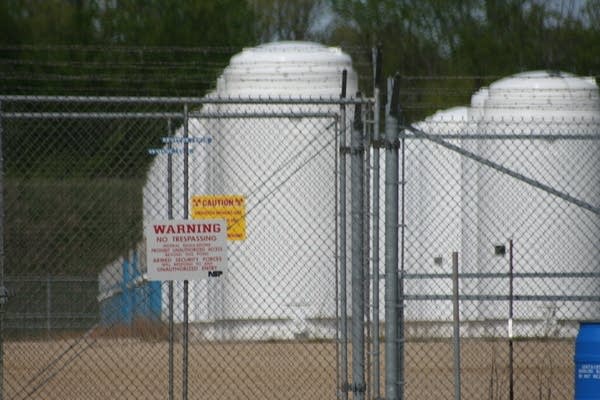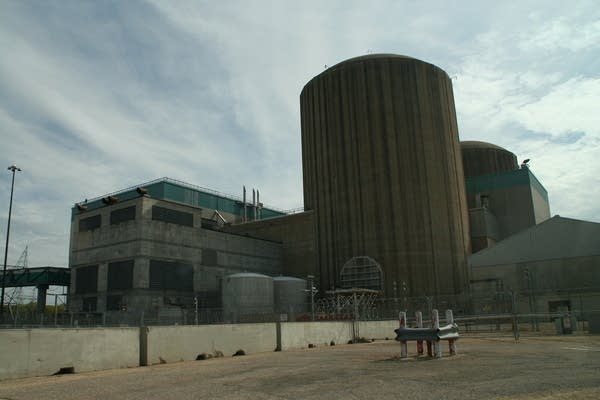Nuclear proponents in Minn. welcome Obama's plan

President Obama, in his State of the Union speech, said the country needs to build "a new generation of safe, clean nuclear power plants," and for advocates of removing Minnesota's ban on new nuclear power plants, it was a welcome rallying cry.
It was the first item on a list of projects the president said would lead the country to a future of clean energy.
Joyce Peppin watched the State of the Union speech, and her heart leapt when she heard the president call for more nuclear power. Peppin is a Republican lawmaker from Rogers who has sponsored legislation to remove Minnesota's ban on new nuclear plants. Last year, the measure failed in the House but passed in the Senate.
"Removing the ban is especially important because the Big Stone II project was cancelled, so we need base load power to meet our energy demands," Peppin said.
Create a More Connected Minnesota
MPR News is your trusted resource for the news you need. With your support, MPR News brings accessible, courageous journalism and authentic conversation to everyone - free of paywalls and barriers. Your gift makes a difference.
Big Stone II was a coal-fired power plant that partner utilities abandoned, partly because of concerns about future regulation of carbon emissions.
Minnesota's two nuclear plants provide almost a quarter of our electricity. The ban on new plants was imposed 15 years ago when Xcel Energy was allowed to store more nuclear waste at its Prairie Island plant.
Minnesota utilities have been concentrating on meeting the state's requirements for conservation and renewable power. They aren't proposing major generating plants, either coal-fired or nuclear.
"Removing the ban is especially important because the Big Stone II project was cancelled."
Still, a group called Sensible Energy Solutions for Minnesota is backing the move to repeal the ban. The group is a coalition of diverse groups including the Minnesota Chamber of Commerce and some unions.
Ben Golnik, a spokesman for Sensible Energy Solutions, said if the bill passes it will open up the conversation about new nuclear in Minnesota.
"I think the chances of it passing are pretty decent, and at the end of the day if we want to talk jobs, the environment and energy, this will address all those issues," Golnik said.
A handful of votes blocked the repeal last year; Golnik said the president's words will boost support.
"He's got the bully pulpit, he's the leader of the country; to have him come out strongly for nuclear, I think will send a strong message to people that now's the time to at least consider in Minnesota more nuclear," he said.
But critics of nuclear power see the president's call as a purely political move. Bill Grant with the environmental group the Izaak Walton League, said climate change legislation is in so much trouble in Congress, the president needs to appeal to a broader range of interests, including those who favor nuclear.
"Now Sen. Lindsey Graham is part of the effort to craft a bipartisan bill, and that is clearly his 'ask' coming to the table on such negotiations," Grant said.

But Grant said nuclear power won't offer much ammunition in the fight against climate change. The nuclear industry points to new power plants being built in Asia in four or five years. But in Europe, projects are taking far longer.
If it takes ten years or more to build a new plant, Grant said that would overshoot the targets most scientists are setting for quick reductions in carbon emissions.
"I just don't see, given the cost of the technology, the lead time associated with building it, and the fact that a mid-century target is staring us in the face, that nuclear is going to end up being much of a player in meeting that kind of target," he said.
With $18.5 billion in government loan guarantees, the nuclear industry plans to build two to four nuclear reactors in the next six to eight years, mostly in the southeastern U.S.
One thing President Obama did not mention is a solution to the nation's growing stockpile of nuclear waste. In the absence of a national solution to the waste problem, Xcel's Prairie Island nuclear plant is asking for permission to store more waste on site.
